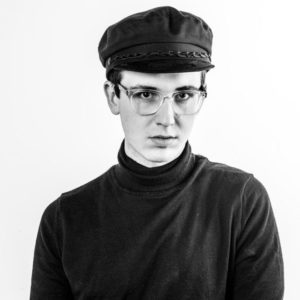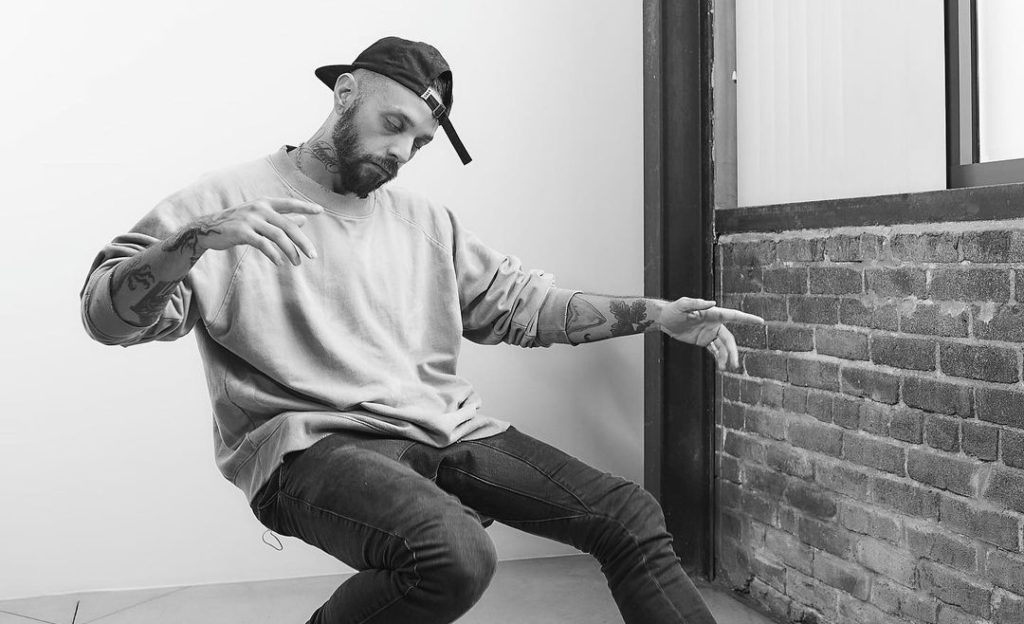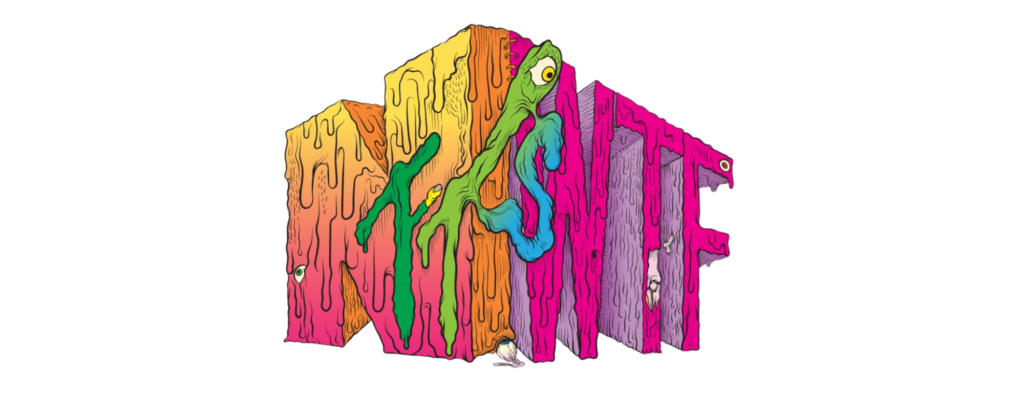Welcome to my ongoing series for WTF where I highlight some of my favourite artists in the NFT space via both IRL and virtual interviews surrounding various industry events. Today I’m joined with the incredible Franky Nines; a long-time artist and NFT OG, creator of SUPDUCKS, and a member of the NFTS.WTF DAO. So much could be said about his career, but I’ll let him tell you for himself in the interview below:
David Cash: Hello, everyone. Welcome back to NFTS.WTF. My name is David cash, Editor in Chief, and today I’m happy to be joined by one of our DAO members, Franky Nines. Very happy to have you here at ETH Denver.
Franky Nines: Sup, sup, sup!
DC: Super exciting. How have you enjoyed your time here so far, and what are you excited about?
FN: Oh, man, this is my third ETH Denver. So I’ve been coming to this conference and even the ETH Global Conferences, so every time it’s conference season, I get to see old friends, make new friends, hack, get some swag and go to some cool parties. So no, it’s good. I’m excited to crunch some code and check out some of these bounties and be productive this time. At NFT NYC, I was just in party mode.
DC: Well, there were too many parties. There were three a day!
FN: No boats, though. No boat parties.
DC: Yeah, we’re a little landlocked now.
Awesome. I’m curious to hear from your perspective how things have changed. Because, if you were at one of these before the pandemic versus now, I’m wondering if you’ve noticed any change since the whole NFT boom?
FN: Yeah, I started to come to conferences in 2017. In 2018, I went to ETH Berlin, which was my first Ethereum specific conference and then shortly after was in ETH SF, and then ETH Denver, and I just bounced around. It’s an entirely different scene. Until right before the pandemic, every conference you went to was all the same group of people. So it was like a high school reunion every single time. All of those people doing the hackathon and building projects are some of the big-funded large platforms we have today, and I was at the hackathons when they were building those and everything. Now all those people are mad famous. You can’t find them. They’re throwing crazy events. I miss my old degens friends. But no, it’s dope. It’s definitely changed. I mean, ETH Denver right now is packed. It is crazy.
DC: I can barely get upstairs. We’re on the top floor here. But it’s very cool. It’s pretty indicative. You saw the same thing at NFT NYC. Last year versus this year, I think they had over 10,000 people there this year. I don’t know how many people are here, but it seems like 1000s of people. Every person you see outside is asking, “Is there something going on inside?” or “ What’s this?” Or sometimes they straight up ask, “What’s this conference going on?” Because obviously we’re all wearing passes and lanyards.
FN: I told my Uber driver, “You see all the people down Broadway? That’s where I’m going. And they all ask, “What is that?” You should probably know ETH Denver only happens in Denver.
DC: You’ve been in the space for a while. You’ve done a whole bunch of different things. You’ve gone from the commercial side to launching your own NFT project. You’re a collector, and you’re an artist. So I’d love to hear from your perspective what you would say was your start in NFTs? If you maybe had a crypto backstory, we could do that too. But we’d love to hear where you started in NFTs and how you got to where you are now.
FN: I was in college in the Bay Area, Silicon Valley, from 2006 to 2009. I was working in the gaming industry. The first company I worked for was a company that was right after Club Penguin got acquired by Disney. So there’s this huge boom of these little massive multiplayer kids games, and I was a visual artist. So, I was already in the high visual side of technology, and I did app development. I ended up working in an agency. We built products for many clients, did a lot of celebrity work, did a lot of collaboration work. Then a buddy of mine, who’s downloading the merch shop, asked me in 2017, “Hey, do you want to do this hackathon to design a crypto wallet?” I knew what Bitcoin was from homies doing some shady shit on the internet, but I had no idea how to make a Bitcoin wallet. I didn’t even know what Ethereum was. And sure enough, we did the contest, and we won. That turned into a tier two visa and me moving to London, and this was for a company that just ICO’d at the end of 2017. So we were working there, hacking and from that piece coming from web and mobile games and moving into blockchain and understanding tokens and protocols and the education was just like building these skills where you learn more and more and more.
DC: You start to drink from the fire hose.
FN: You start to build a crazy passion almost as if crypto is its own religion, right? You begin to develop such a deep passion to where I’m never going back. And in late 2017, we’re all minting Ethereum and putting it on my ether wallet. And the next thing I know, gas is crazy, transactions are failing. And everyone’s wondering what’s going on. And these crypto kitties started popping up. And when I saw it, because I came from gaming and visual art, I knew exactly what it was. I knew exactly what they were doing, how that works, all that stuff. So I ended up applying for a job, and I ended up at Dapper Labs for two years. So, I ended up moving back to the US. And then, I was working directly under the chief creative. I was doing a lot of pitch deck work, and I did a lot of concept work on new products. Flow was still in development, so we were trying to solve problems like how do you build games on Ethereum or on blockchain in general? And layer two, and side-chain stuff was still very early. So it was the game initially, yeah, bring them up the game. The writing and retrieval of data are not scalable.
DC: But then, all of a sudden, there are 2 million Crypto Kitties.
FN: Right, and then that spiralled into working with a couple of other companies. I worked with Jimmy at NFT 42. This led me to be the lead designer on Vee Friends with Gary Vee. So I helped him build his collectible system and did the UI and helped build that project and bring it to life. And it was alright, but I was in between things at the time, I was working on nameless, and I was thinking “What do I want to do?” And at that time Bored Apes came out and a buddy of mine DM’d me on Twitter and said, “Hey, you should make a SupDucks PFP project.” So I said, “Alright, let’s do it. Let’s build a team.” And it went quickly because I already knew what we needed to do to make it happen because of all my experience. So I said, “Alright, I need a developer for this. I need a front-end guy for this. Here’s gonna be the art pipeline. I did all the artwork. We dropped it and then boom, the next thing I know we have a full company, we have crazy discord, and we’re getting recognized on the street. People were approaching us saying, “Sup, you’re Franky Nines!” and I was like, “I know. I am.” It’s crazy!
DC: That’s awesome. I think it’s really interesting how, once you’ve gone through the process of building out an NFT project, it almost becomes your own personal formula. And you kind of know what to do. I wonder, from your perspective, do you attribute any of your know-how to doing all this corporate work or client work, I suppose, moving into your own thing, Do you think that background allowed you to do what you’re doing today?
FN: Yeah, definitely because I do some Twitter Spaces and interviews here and there and I’ve actually done some talks to for a couple of virtual conferences, and people ask me, “How do you define and approach success because a lot of projects launch, and they don’t mint out or people have grand ideas, but the execution is key, right? And that’s something that you just don’t magically pick up, right? Sometimes you get lucky. But a lot of the time, it’s strategic know-how, and when you look at the projects that are in the top charts, and you look at projects that are winning, essentially, look at the backgrounds of the people building those. They have real experience, right, you’re getting people from legit Big Blue companies. Now they’re doing degen stuff, making 5x of the money they’ve ever made in their life, and just totally down this crypto rabbit hole.
DC: I’m asking that question because I talk a lot about how NFT projects these days a lot of people, in their thought process, will kind of end when the drop goes live. Okay, we got to the drop and now its done, but really, a successful NFT project is a 360 media company that you’ve built a community around, and the NFT is the product or the corralling factor that everybody’s here for, but it’s really about what you built and what you’re going to do. So I feel you’ve done a great job of that. And I wonder if you had any thoughts on what would be required? If you’re putting together an NFT project? What elements do you need? Obviously, you need discord to build a successful community, at least from your perspective.
FN: Definitely when people ask me what are the most important pieces to this? I tell them communities everything, right? Even your own personal social reputation is a lot. When we launched Sup Ducks, some of the first mentors were all people that I knew from the industry and when they found out I was doing a project their initial response was, “Oh shit, you’re dropping one of these, it’s gonna be dope!” They knew, right? So they were ready to ape in. They knew my work, they knew my background. So, there was definitely that reputation piece. You’re not going to know how to build and run a community, you’re not going to know how to build and run an NFT project unless you’ve been in one and or in a lot of communities and you’ve interacted in the space. That’s the difference between this technology boom and say the traditional booms. It’s so community-focused, there’s a scam, and there’s trust, and there’s transparency and if you don’t have any experience in that, you’ve never been in a discord you’ve never attended an AMA, you’ve never been on a Twitter Spaces, you’re not going to know how to do that when it’s your turn. And those are all key pieces to it. Aside from fire art, a dope marketing strategy, even if it’s just a little viral campaign or just sharing with your friends or whatever it’s how do you get that out to people? So, I think the number one thing that I always say is, you got to be in it, to know how to do it and it’s, not even necessarily just creating stuff you have to. Actually, I had a joke with this guy I was working with, he got hired, he was fresh to the NFT space. And I said, “Look, man, until you’ve spent over 100 grand on NFTs and gotten hacked and gotten burned for 50k I can’t really trust your opinions in this space.” And I was just giving him a hard time. But I’ve lost so much. Do you know how many private keys I’ve lost and I don’t have access to any more or things I’ve accidentally sold? And, all those mistakes have now made it so I know exactly what I’m doing when I’m doing it.
DC: 100%, I was even gonna say, when you’re saying people who are entering the space, they have to have experienced communities, I also say you have to have experienced, witnessed or be a part of some kind of a failure or some kind of a process that maybe didn’t work out so well just so you see how that goes. And how you come back from that. So that you don’t do that.
FN: Yeah, exactly.
DC: Something interesting in your case, is specifically your background, at Dapper Labs, and then, NFT 42, and all that. But from Dapper Labs, I see the way you roll out a project. And there’s this narrative. There are obvious elements. And I think when you’re mentioning the good art and the great marketing strategy, you kind of have to have that if you want to have a semi-successful project. There’s no way around that. But then everything else that comes around the web three company mentality, how do you take this and turn it into a business?
FN: It’s also it’s a cultural movement. Web 3 culture, Ethereum culture, NFT culture is its own beast. You can see it though, with the current boom that’s happening, where you have these big artists, and you have big corporations and brands getting into the space. They only succeed to a certain level, and then you can see the reflection in their lower floor prices. If they don’t continue or if their projects aren’t selling or something, just because they don’t have the Web 3 culture that everybody is in love with. It’s that authenticity, right?
DC: Some of the people today have even talked about how ETH Denver this year versus previously Denver’s there’s a lot more project, but there’s also a lot more FUD and kind of false attempts and people trying to use just a bunch of buzzwords saying, “Oh, I’m gonna make my own DAO and a PFP and a play to earn game!”
FN: Even just making a DAO is hard already.
DC: Exactly. So maybe just one last thing to leave people with for all the people who are here at Denver, just in general are trying to attend these conferences, start their projects? What would you tell them not to do?
FN: Well, don’t promise anything that you can’t actually pull off. That’s the most important piece. And I think that the reason being is being good at setting your own expectations, and setting the expectations of others, right. And being able to actually nail those goals, build your reputation, build your authenticity. We’re still in a very gray space in terms of the regulation. Like is this a security? Is it a utility? What are these things? And when you start promising an increase in value, or you start promising things that people are going to speculate is going to increase value. Now you’re starting to play into some muddy waters that could completely change in a year. There’s law behind this. And don’t promise anything that you’re not going to be able to pull off and don’t bite off more than you can chew.
DC: Honestly, it sounds obvious, but honestly is very important for a lot of people in this space, right? Because we’re all kind of in this space. It’s moving so fast. And we all want to do everything, but only do what you’re able to actually do.
That’s awesome. I think that’s a beautiful thing to leave people with. I really appreciate you taking the time out of your hacking. I hope you’re doing super well.
FN: I got a lot of caffeine to drink. So I’m still waking up from last night.
DC: I’m doing some judging on Sunday, so it would be hilarious if I ended up having to judge you.
FN: Oh, man. I hope so!
DC: I’ll judge favourably, I don’t even know what that means. But hey, I’m stoked to be here. Very nice to meet IRL and thanks again for doing this. As always, we’re here with NFTS.WTF. Thanks again, Franky for doing this and appreciate everybody. Have a great rest of your day live from ETH Denver.



